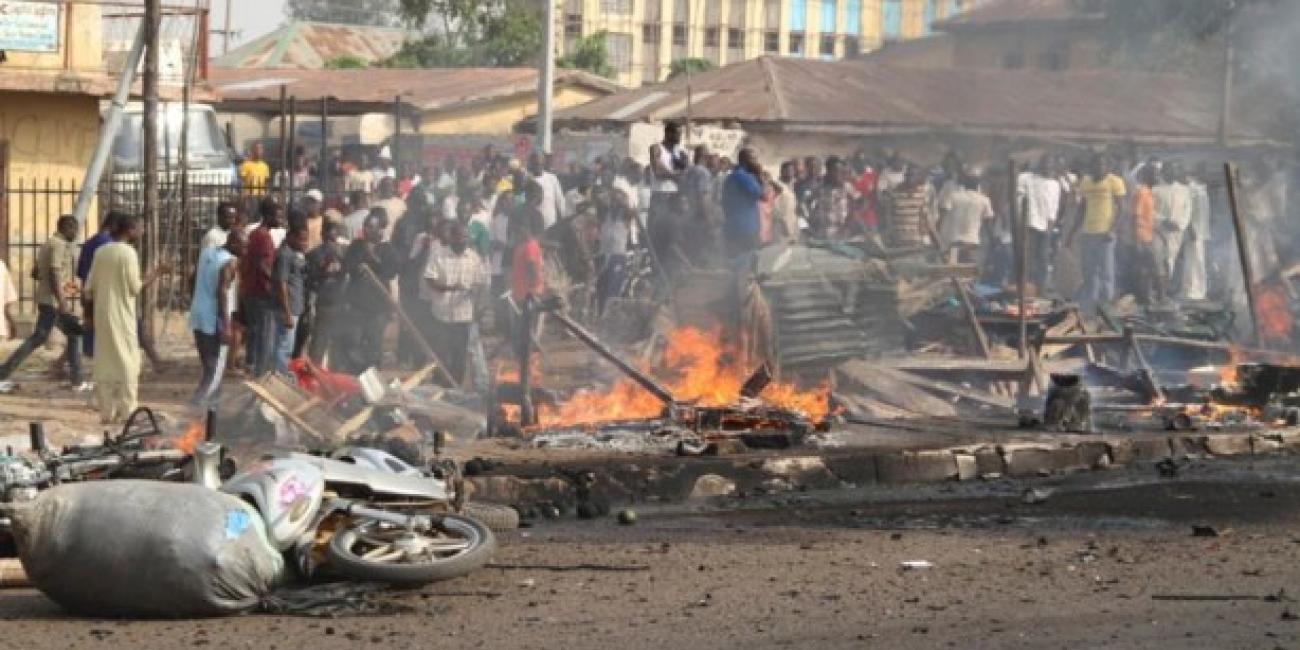President Bola Ahmed Tinubu is set to make his first official visit to the Dangote Petroleum Refinery in Ibeju-Lekki, Lagos, today at approximately 08:50 AM WAT. This visit marks a significant moment in the nation’s journey toward energy independence. The 650,000 barrels-per-day refinery, the largest in Africa, has been a cornerstone of Nigeria’s efforts to transform its oil and gas industry, and the President’s visit underscores the government’s commitment to supporting this monumental project. As residents of Lagos brace for potential traffic disruptions in the Ibeju-Lekki area, the nation watches closely to see how this visit could shape the future of Nigeria’s energy landscape.
A Game-Changing Facility
The Dangote Petroleum Refinery, spearheaded by Africa’s richest man, Aliko Dangote, represents a bold step toward ending Nigeria’s decades-long reliance on imported refined petroleum products. Despite being one of Africa’s largest oil producers, Nigeria has historically depended on foreign refineries to meet its fuel needs, a paradox that has drained billions of dollars from the economy. The 20 billion dollar refinery, which began producing diesel and aviation fuel in January 2024 and gasoline in September 2024, is designed to process 650,000 barrels per day, making it one of the world’s largest crude processing facilities.
Located on the outskirts of Lagos, the refinery has already begun to reshape Nigeria’s energy dynamics. It is currently operating at approximately 85 percent capacity, with projections to reach full operational capacity within the next 30 days, according to Edwin Devakumar, head of the refinery. This milestone is expected to meet 100 percent of Nigeria’s demand for refined petroleum products, including gasoline, diesel and jet fuel, with surplus for export to regional and global markets. The refinery’s ability to process Nigeria’s Bonny Light crude, known for its high gasoline yields, positions it as a critical asset not only for Nigeria but also for West Africa’s energy security.
A Visit with High Stakes
President Tinubu’s visit comes at a pivotal time for the refinery, which has faced significant challenges since its inception. Crude supply issues have been a persistent hurdle, with the refinery struggling to secure sufficient volumes from the Nigerian National Petroleum Company under a naira-for-crude agreement. This led to a temporary suspension of fuel sales in naira in March 2025 to avoid financial mismatches, as crude purchases were made in dollars. The President’s presence is expected to signal renewed government support for resolving these supply chain bottlenecks, potentially through negotiations with domestic oil producers and regulators.
The visit also carries symbolic weight, as it aligns with Tinubu’s broader economic reforms, including the controversial removal of fuel subsidies in 2023, which cost the government 10 billion dollars annually, over 40 percent of its tax revenue. The subsidy removal, while sparking a cost-of-living crisis, was intended to redirect funds toward infrastructure and industrial development, with the Dangote Refinery as a flagship beneficiary. Aliko Dangote has publicly thanked Tinubu for his support, particularly for the naira-for-crude policy, which has facilitated the refinery’s operations.
Overcoming Resistance
The refinery’s journey has not been without controversy. Aliko Dangote has repeatedly accused a cabal of oil importers, who profited from Nigeria’s reliance on subsidized fuel imports, of attempting to undermine the refinery’s success. These groups, he claims, have funded resistance to both the refinery’s operations and the government’s subsidy reforms. In May 2025, Dangote reiterated these concerns at an investor conference in Lagos, vowing to push the refinery to full capacity despite opposition. The Independent Petroleum Marketers Association of Nigeria has thrown its weight behind Dangote, highlighting the refinery’s potential to disrupt the 17 billion dollar annual gasoline trade from Europe to Africa.
Tensions with regulatory bodies have also marked the refinery’s path. In 2024, the Nigerian Midstream and Downstream Petroleum Regulatory Authority faced accusations from Dangote of issuing gasoline import permits to the Nigerian National Petroleum Company and other traders, allegedly in violation of laws prioritizing domestic refineries. A lawsuit filed by the refinery to halt these imports saw a Nigerian judge dismiss the Nigerian National Petroleum Company’s objection to its inclusion in the case in March 2025, with a ruling expected in May 2026. These legal battles underscore the complex interplay of interests in Nigeria’s oil sector, which Tinubu’s administration is navigating.
Economic and Global Implications
The Dangote Refinery’s impact extends beyond Nigeria’s borders. By reducing Nigeria’s dependence on imported fuel, it has already disrupted European petrol markets, which previously supplied 17 billion dollars worth of gasoline annually to Africa. The refinery’s exports of jet fuel to the United States in March 2025, driven by a maintenance shutdown at a United States refinery, highlight its growing influence on global fuel markets. Additionally, the refinery’s petrochemical arm, which began producing polypropylene in March 2025, aims to meet Nigeria’s 250,000 metric tonnes annual demand and position the country as a net exporter, with a partnership with Vinmar Group to distribute Dangote polypropylene globally.
Domestically, the refinery has sparked a petrol price war, with prices dropping from 880 naira to 865 naira per liter in April 2025, offering relief to consumers grappling with inflation. The facility’s ability to produce at scale could stabilize fuel prices and reduce Nigeria’s foreign exchange expenditure on imports, strengthening the naira. Moreover, the refinery’s success is expected to bolster Nigeria’s cement industry, with Dangote projecting that Nigeria will overtake Egypt as Africa’s top cement exporter by 2026, further diversifying the conglomerate’s economic contributions.
A Nation Watches
As President Tinubu tours the sprawling facility today, all eyes are on the potential announcements that could emerge. Will the government unveil new measures to ensure a steady crude supply to the refinery? Could there be progress on resolving regulatory disputes? The visit is not only a show of support but also an opportunity to address the refinery’s operational challenges and reinforce Tinubu’s vision for a self-sufficient Nigeria.
The Dangote Refinery, once a dream marred by delays and skepticism, is now a beacon of hope for Nigeria’s industrial ambitions. As Aliko Dangote himself noted, building the refinery has put him through hell, but its potential to transform Nigeria’s economy is undeniable.
Looking Ahead
Today’s visit is a testament to the synergy between public policy and private enterprise, with President Tinubu and Aliko Dangote working to overcome entrenched interests and systemic challenges. As the refinery nears full capacity, it promises to redefine Nigeria’s role in global energy markets, reduce its import bill, and create thousands of jobs. For a nation long plagued by fuel scarcity and economic volatility, the Dangote Refinery offers a glimpse of a brighter, more self-reliant future.
Join our Whatsapp channel to stay updated always!




